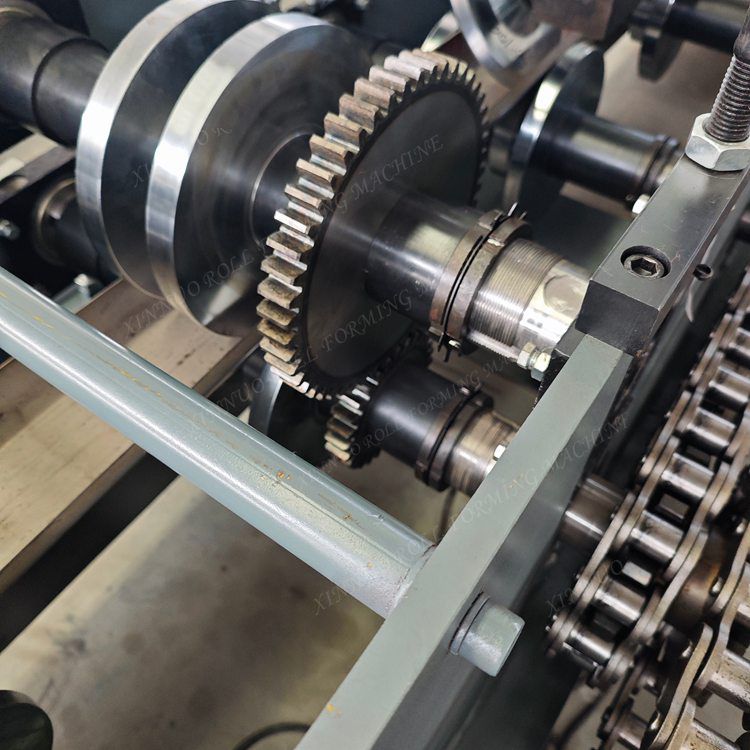modern c-rolling machines are a marvel of industrial automation,
]seamlessly integrating multiple manufacturing processes into a cohesive system.
these machines are designed to transform raw steel coils into precisely designed c-shaped purlins,
representing efficiency and precision in building materials manufacturing.

the rolling part consists of 15-25 stations, each equipped with a precisely
designed roller that can gradually mold the steel into c-shaped steel plates.
unlike manual bending, which can risk inconsistent angles and material pressures,
the automation system ensures uniform curvature and flange size.
the real-time feedback sensor adjusts the drum pressure according to
the material thickness and hardness, maintaining a tolerance of less than ±0.2mm.
this consistency is cruel for structural integrity,
as even small decorations can impair load-bearing capacity.
Once formed, the purlin advances to the cutting station,
where a high-speed flying shear or laser cutter severals it to an exact programmed length.
the cutting mechanism is synchronized with the line speed to avoid jagged edges, ensuring clean, square cuts.
thereafter, the automatic stacking system immediately organizes the finished purlins into bundles using a robotic arm or conveyor belt.
this not only reduces manual labor but also optimizes storage space by arranging purlins in an interlocking pattern. 
by automating these functions, the machine can greatly reduce labor requirements. traditional production lines may require 6-8 workers,
whereas automated c-roll forming systems can operate with just 1-2 operators overseeing quality control and system monitoring.
reduced human intervention also minimizes workplace hazards associated with heavy machinery, sharp tools, and repetitive motion injuries.
| PLC | Delta |
| Motor | Siemens (Bader) |
| Inverter | Delta |
| Electrical components | Schneider |
| Screen type | Touch screen, also have buttons on the panel |